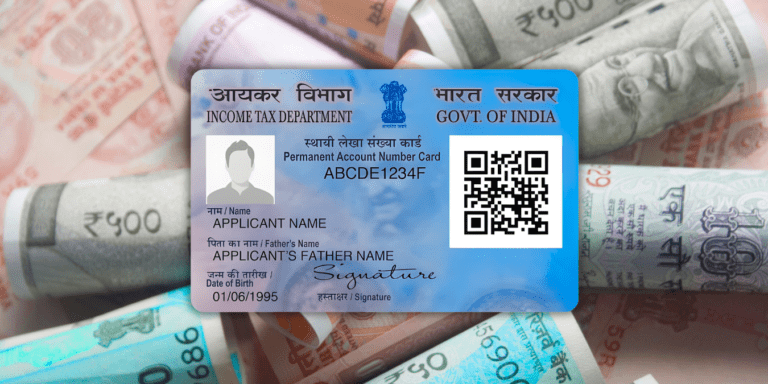
“How to buy your parents’ house while letting them live there! Learn about legal steps, tax savings, home loan options, and smart property transfer strategies in India. Avoid costly mistakes – read this essential guide now!”
In India, the concept of family is deeply rooted in tradition, and taking care of aging parents is a cultural cornerstone. As property prices soar and financial planning becomes more complex, many Indians are exploring creative ways to secure their parents’ future while maintaining ownership of family assets. One such option gaining traction is buying your parents’ house and allowing them to continue living in it. But is this legally feasible in India? What are the financial and tax implications? And how can you ensure it benefits everyone involved?
In this comprehensive guide, we’ll explore whether you can buy your parents’ house in India, the legal processes involved, tax considerations, and practical steps to make it work. Whether you’re looking to safeguard your family home or optimize your finances, this blog post has the latest insights and data to help you make an informed decision.
Why Consider Buying Your Parents’ House?
The idea of purchasing your parents’ home might seem unconventional, but it’s a practical solution for many Indian families. Here are some reasons why this arrangement is becoming popular:
- Preserving Family Legacy: Many Indians view the ancestral home as a symbol of heritage. Buying it ensures the property stays within the family.
- Financial Security for Parents: Selling the house to you provides your parents with liquid cash for retirement or medical expenses, while they retain a roof over their heads.
- Tax Benefits: Property transactions between parents and children can sometimes offer tax advantages under Indian law.
- Rising Property Costs: With real estate prices in cities like Mumbai, Delhi, and Bengaluru skyrocketing—averaging ₹10,000–₹20,000 per square foot in 2025—securing the family home now can be a smart investment.
According to a 2024 report by Knight Frank India, residential property prices in Tier-1 cities have risen by 11% year-on-year, making it a compelling time to consider such arrangements.
Is It Legal to Buy Your Parents’ House in India?
Yes, it is entirely legal to buy your parents’ house in India, provided the transaction adheres to the country’s property and tax laws. Here’s how it works:
1. Property Ownership and Transfer Laws
In India, property transactions are governed by the Transfer of Property Act, 1882, and the Indian Registration Act, 1908. A sale between parents and children is treated like any other property sale, requiring:
- A valid sale deed.
- Payment of stamp duty and registration fees (varies by state).
- Clear title ownership by your parents.
For instance, in Maharashtra, stamp duty is 6% of the property’s market value, while in Tamil Nadu, it’s 7%. Check your state’s rates for 2025, as these can fluctuate.
2. Consent and Documentation
Your parents must willingly agree to sell the property. The sale deed must be signed by both parties and registered at the local sub-registrar’s office. Additionally:
- Ensure there are no existing loans or liens on the property.
- Obtain a No Objection Certificate (NOC) if required by local authorities or housing societies.
3. Letting Parents Live in the House
After purchasing the house, you become the legal owner. Allowing your parents to live there is your prerogative as the owner. You can formalize this arrangement through:
- A rent-free occupancy agreement: A simple legal document stating they can live there without paying rent.
- A life interest clause: This ensures they have the right to reside in the house for their lifetime, even if ownership transfers to you.
Financial Implications of Buying Your Parents’ House
Before proceeding, consider the financial aspects of this decision. Here’s a breakdown:
1. Cost of Purchase
You’ll need to pay your parents a fair market value for the property. As per the Income Tax Act, 1961, if the sale price is significantly below market value (less than 90% of the circle rate), it may trigger scrutiny from tax authorities. For example:
- If the market value of a house in Delhi is ₹1 crore, you should pay at least ₹90 lakh to avoid tax complications.
2. Stamp Duty and Registration Fees
These costs vary by state. For instance:
- Karnataka: 5.6% stamp duty + 1% registration fee.
- Uttar Pradesh: 7% stamp duty for male buyers, 5% for female buyers (as of 2025 incentives).
3. Funding the Purchase
You can finance the purchase through:
- Personal savings.
- A home loan (banks like SBI and HDFC offer competitive rates, averaging 8.5–9% in 2025).
- Liquidating other investments.
4. Parents’ Financial Benefit
The sale proceeds can help your parents fund their retirement, healthcare, or daily expenses, especially since 60% of Indian seniors lack a formal pension, per a 2024 NITI Aayog report.
Tax Implications for You and Your Parents
Taxation is a critical factor when you buy your parents’ house in India. Here’s what you need to know:
1. Capital Gains Tax for Parents
When your parents sell the house, they may incur:
- Long-Term Capital Gains (LTCG): If they’ve owned the property for over 24 months, LTCG tax applies at 12.5% (as per Budget 2024 changes) on profits after indexation.
- Exemption Options: They can reinvest the gains in another residential property or specified bonds (e.g., REC or NHAI) under Section 54 or Section 54EC to avoid tax.
2. Income Tax for You
- If you buy the house at fair market value, there’s no additional tax liability.
- If you pay below market value, the difference may be treated as a “gift” under Section 56(2)(x), taxable as “income from other sources” at your slab rate.
3. Gift Tax Consideration
If your parents gift the house instead of selling it, no tax applies to you or them, as gifts from parents to children are exempt under the Income Tax Act. However, this doesn’t provide them with cash, defeating the purpose of a sale.
Steps to Buy Your Parents’ House and Let Them Live in It
Here’s a step-by-step guide to execute this plan seamlessly:
Step 1: Discuss with Your Parents
Have an open conversation about their financial needs and willingness to sell. Ensure they’re comfortable with the arrangement.
Step 2: Assess Property Value
Hire a certified valuer to determine the fair market value. In 2025, valuation costs range from ₹5,000 to ₹20,000, depending on location.
Step 3: Arrange Finances
Decide how you’ll fund the purchase—savings, loans, or a mix. Compare home loan rates from banks like ICICI (8.6%) or PNB (8.8%).
Step 4: Draft the Sale Deed
Engage a property lawyer to draft the sale agreement. Include a clause allowing your parents to live in the house rent-free.
Step 5: Pay Stamp Duty and Register
Visit the sub-registrar’s office with all documents (ID proofs, title deed, NOC) and complete the registration process.
Step 6: Formalize Living Arrangement
Sign a rent-free occupancy agreement or add a life interest clause to secure your parents’ stay.
Pros and Cons of This Arrangement
Pros
- Ensures your parents have financial liquidity without losing their home.
- Protects the family property from external claims or disputes.
- Offers you a valuable real estate asset amid rising prices (e.g., Mumbai’s 13% price hike in 2024, per CBRE India).
Cons
- High upfront costs (stamp duty, registration, purchase price).
- Potential family disputes if siblings are involved.
- Tax implications if not structured properly.
Alternatives to Buying Your Parents’ House
If buying isn’t feasible, consider these options:
- Gifting: Your parents can gift the house to you, tax-free, but this doesn’t provide them with funds.
- Will or Inheritance: Wait for the property to pass via a will, though this delays ownership.
- Reverse Mortgage: Your parents can opt for a reverse mortgage, where a bank pays them monthly while they retain occupancy.
Real-Life Example: How It Works in India
Take the case of Priya Sharma, a 35-year-old IT professional from Bengaluru. In 2024, she bought her parents’ 3BHK house in Koramangala for ₹1.5 crore. She paid ₹1.35 crore (90% of market value) to avoid tax issues, funded through a ₹1 crore home loan and savings. Her parents used the proceeds to clear debts and fund healthcare, while Priya signed an agreement letting them live there rent-free. This arrangement secured their future and gave Priya a high-value asset in a booming market.
Is It Worth It?
Buying your parents’ house and letting them live in it is a win-win solution for many Indian families. It combines emotional security with financial pragmatism, ensuring your parents’ comfort while safeguarding a valuable asset. However, it requires careful planning—legal, financial, and familial—to succeed.
With property prices in India projected to rise by 8–10% in 2025 (per Colliers India), now is a strategic time to act. Consult a property lawyer and tax expert to tailor this arrangement to your circumstances.
-

Indian Stock Market Trends: Sensex, Nifty, and Key Insights for Today
-

8th Pay Commission Breaking: 5 Promotions, OPS Back, CGHS ₹20K – What Staff Bodies Want Now
-

Thousands of Widows and Disabled Pensioners Now Eligible for Free Treatment — What Changed Under PM-JAY?
-

Saudi Arabia Bans Poultry & Egg Imports From 40 Countries — Is India on the List?




























